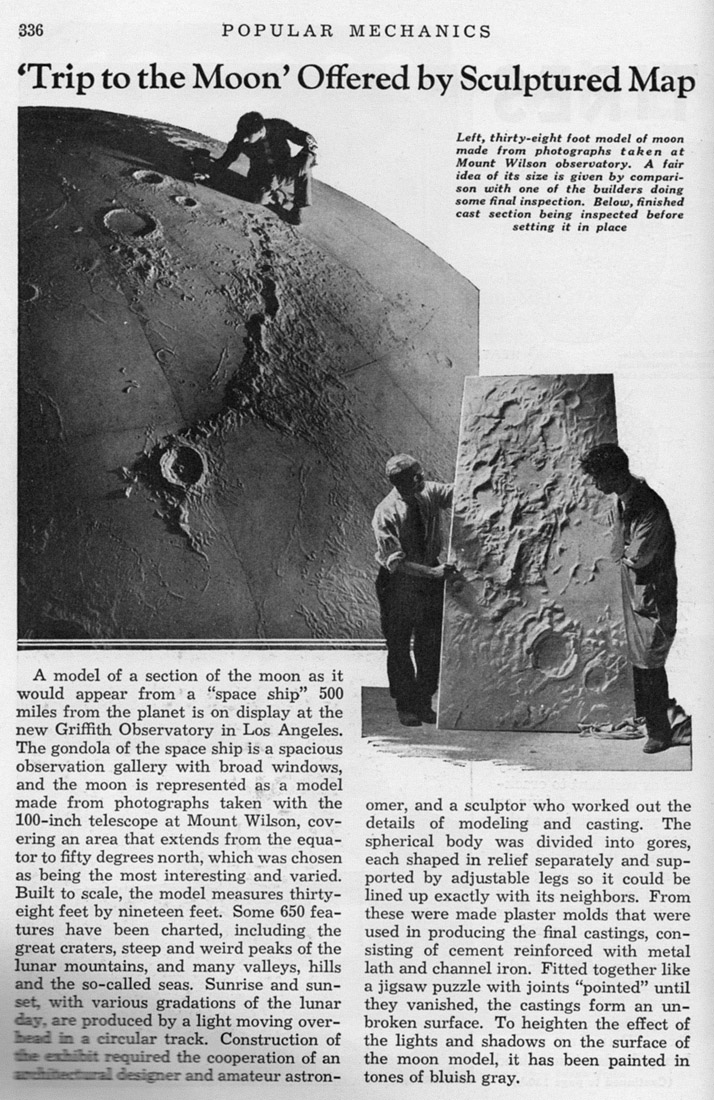Difference between revisions of "October 5, 2024"
(Created page with "__NOTOC__ =Globe History= Originally published May 11, 2014 <!-- Start of content --> <!-- ws:start:WikiTextHeadingRule:0:<h1> --> <!-- ws:start:WikiTextLocalImageR...") |
(Created page with "__NOTOC__ =Globe History= Originally published May 11, 2014 <!-- Start of content --> <!-- ws:start:WikiTextHeadingRule:0:<h1> --> <!-- ws:start:WikiTextLocalImageR...") |
(No difference)
| |
Latest revision as of 02:05, 5 October 2024
Globe History
Originally published May 11, 2014

image by Howard Fink, New York
This 1940 Popular Mechanics article tells of story of a little known - to me until Howard brought it to my attention - large lunar model. Ed Krupp, the director of Griffith Observatory recently provided me more information about this large model. The Moon model was in the Observatory's South Gallery, which as recent visitors may know, still exists and currently holds Gravity's Stairway.The model was removed and destroyed about 1965, and replaced, first with a 6 foot Rand McNally Earth-facing hemisphere, and later with a similar sized rotating globe of the entire surface. That 38 year old globe is still on display near an Apollo 14 sample. The main creator of the model was the extraordinary, but now mostly forgotten, artist Roger Hayward. The December 2007 issue of Sky & Telescope has a great article on Hayward - who long made the distinctive drawings in Scientific American's Amateur Scientist column and invented the Schmidt-Cassagrain telescope. I thank Ed Krupp for this information, and congratulate him for his 40th anniversary as director of the fabulous Griffith Observatory.
Chuck Wood
Yesterday's LPOD: Bright Rim
Tomorrow's LPOD: Slip-Sliding Away
COMMENTS?
Register, Log in, and join in the comments.



